PsychNewsDaily Publishers
100 Summit Drive
Burlington, MA, 01803
Telephone: (320) 349-2484
PsychNewsDaily Publishers
100 Summit Drive
Burlington, MA, 01803
Telephone: (320) 349-2484
Hawaii offers extensive mental health services, including crisis intervention, therapy, and culturally specific programs, available to residents across all islands, regardless of income or insurance.
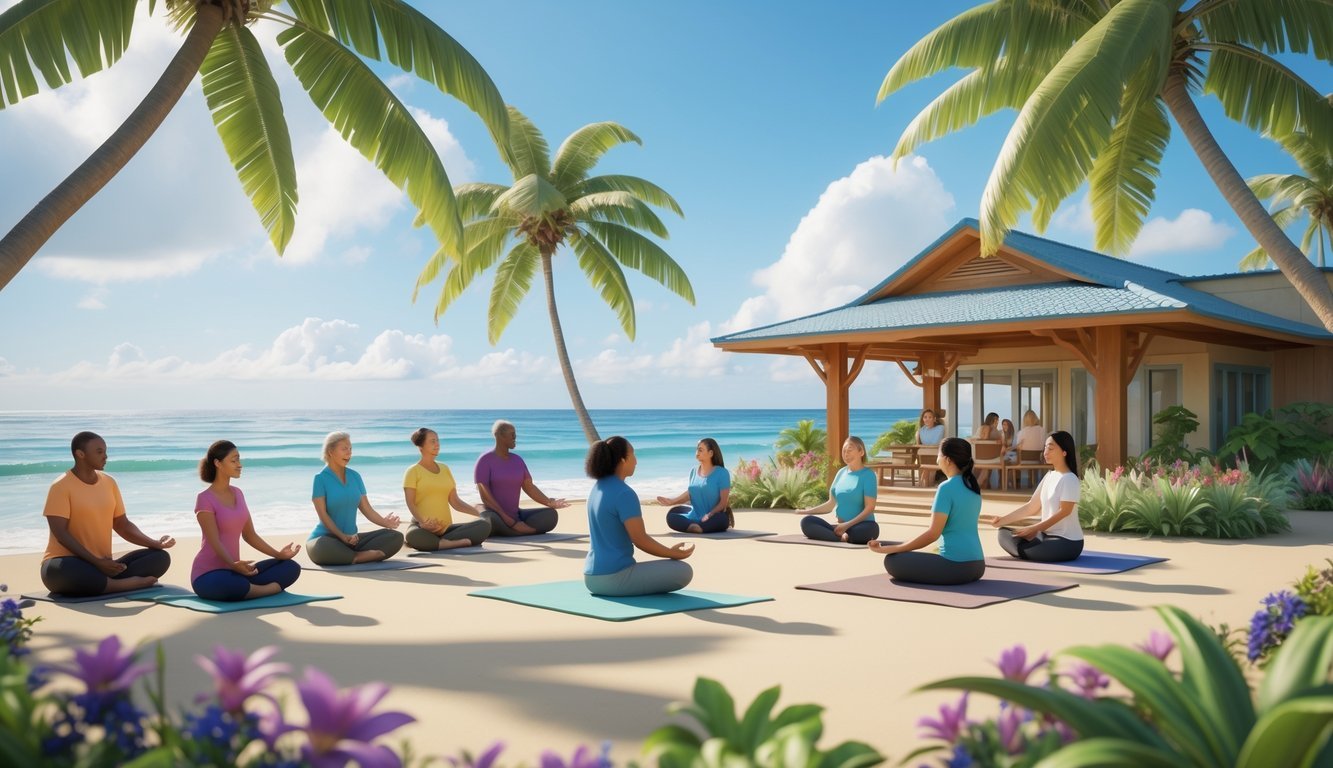
Living in Hawaii doesn’t mean you have to face mental health challenges alone or empty your wallet to get help.
The state has plenty of free mental health services through government programs, community groups, and healthcare providers. You’ll find everything from crisis intervention to ongoing therapy and support programs.
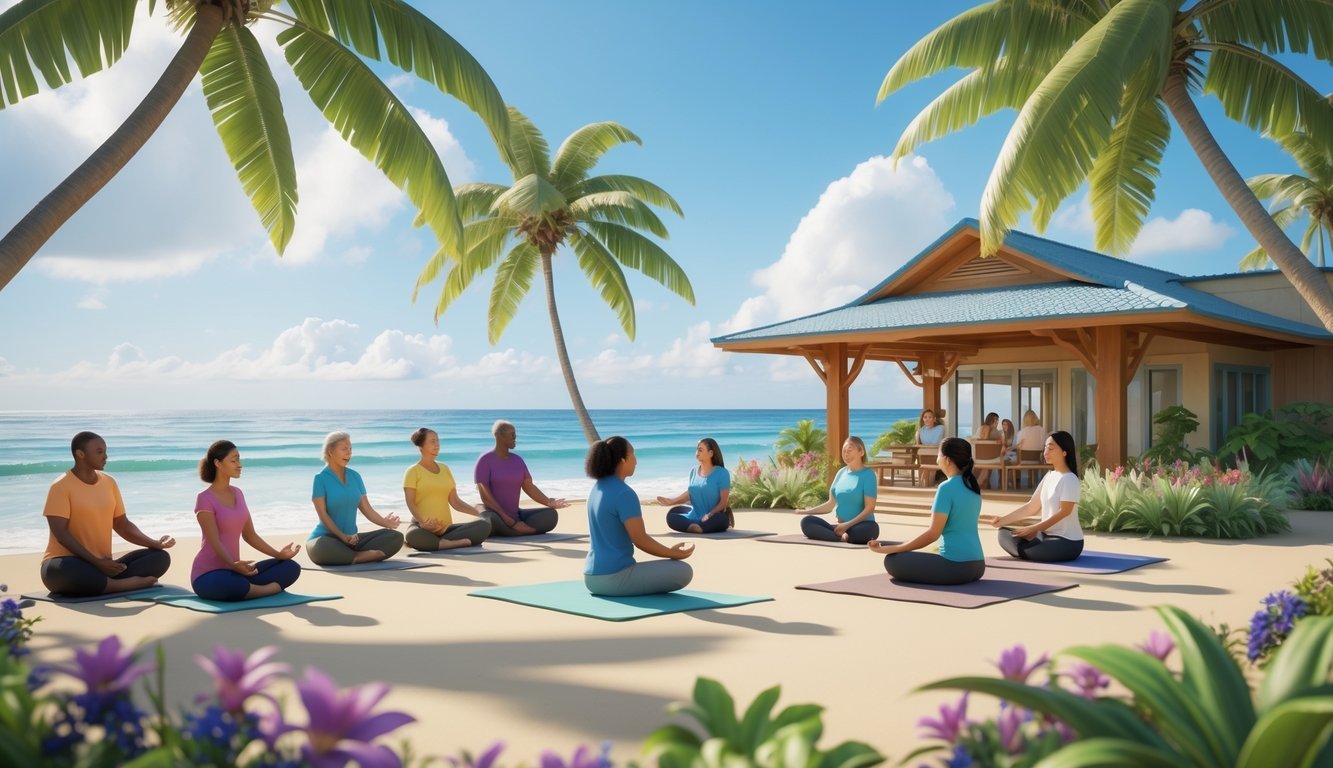
You can reach out for help whether you’re dealing with a crisis, a substance use issue, or just need someone to talk to long-term.
Hawaii’s mental health network covers a lot, from 24-hour hotlines to programs that respect Native Hawaiian views on healing and wellness.
It can feel overwhelming to figure out what’s out there, but knowing your options might be the difference between struggling alone and getting the help you need.
These programs serve residents on every island, and most offer in-person and virtual support, so you can get help wherever you are.
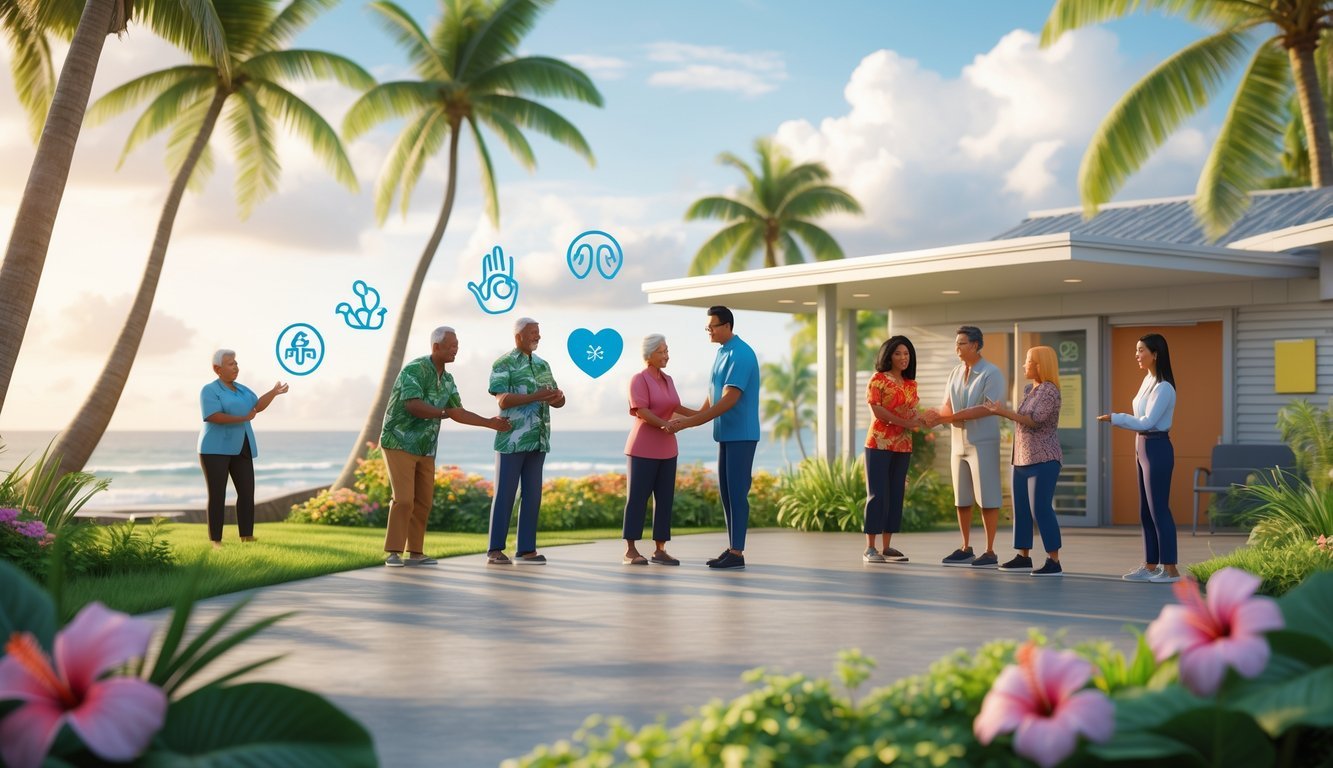
Hawaii has several ways you can get free mental health care through state programs, community partnerships, and nonprofits.
Most of these services focus on people with serious mental illness and those who meet certain income or residency rules.
You can qualify for free mental health services in Hawaii if you meet certain financial and residency requirements.
Most programs ask for proof that you live in Hawaii and need to see your income.
Income Requirements:
You don’t need insurance to get emergency mental health care.
Crisis services are open 24/7, no matter your ability to pay.
Priority Groups:
You’ll typically need a Hawaii ID, proof of income, and any mental health records you have.
Some programs let you declare your financial need during emergencies.
The Adult Mental Health Division runs Hawaii’s main free mental health services.
This division supports adults with serious mental illness across all islands.
Core Services Include:
You can visit a community mental health center on your island for an intake assessment.
Staff at these centers connect you to the right care for your situation.
The state also funds programs for specific populations.
Veterans get services through state and federal partnerships.
Youth programs are run by the Child and Adolescent Mental Health Division.
Geographic Coverage:
Major hospitals across Hawaii provide emergency psychiatric services 24/7.
These services include crisis assessment, short-term stabilization, and safety planning.
Nonprofits in Hawaii offer community-based mental health programs and fill gaps that state services might miss.
They often focus on peer support, culturally specific care, homeless outreach, and family education.
Major Service Areas:
Some nonprofits serve only Native Hawaiians and use traditional healing.
Others focus on trauma or substance abuse recovery.
You can reach out to these organizations directly or get referred by state programs.
Many accept walk-ins and offer same-day assessments.
Funding Sources:
The Hawaii Behavioral Health Training Institute trains counselors for these free programs.
This helps maintain quality care across nonprofits.
Some groups run mobile crisis teams that bring mental health care to people who can’t get to a clinic.
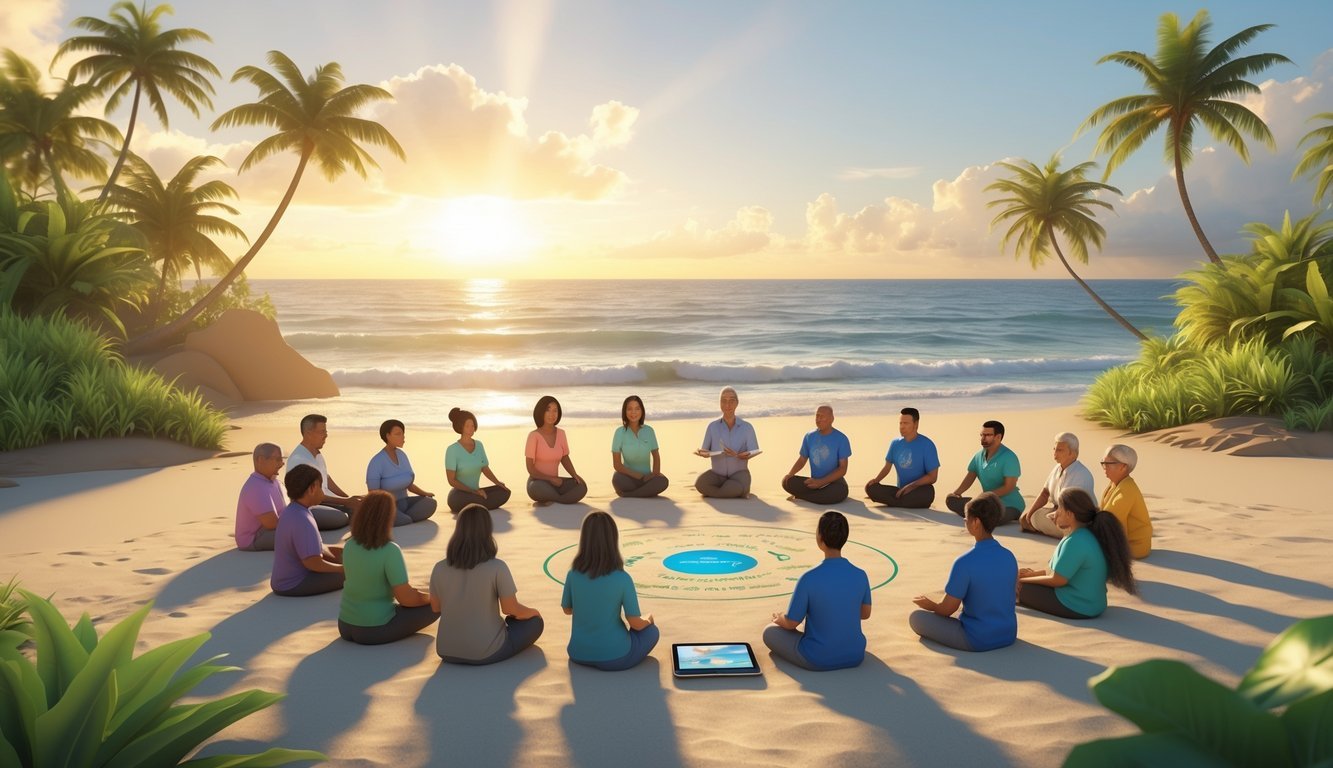
Hawaii offers several crisis intervention services you can use any time, day or night.
The crisis response system includes phone support, mobile teams, and suicide prevention resources.
When you dial 988 from anywhere in Hawaii, you reach Hawaii CARES 988 for immediate crisis support.
This hotline replaced the old 10-digit suicide prevention number in 2022.
Available Services:
Trained crisis counselors answer your call and understand Hawaii’s unique culture.
If you’d rather text, you can text 988 too.
Hawaii CARES 988 serves every county, including Oahu, Maui, Hawaii Island, and Kauai.
Calls are free and confidential.
If you’re in crisis, mobile outreach teams can come to you.
These professionals respond to homes, schools, and community spaces across Hawaii.
Mobile Team Services:
Each county runs its own mobile crisis program, so response times can vary.
Oahu usually responds within 2-4 hours, but neighbor islands might take longer.
You can request a mobile crisis team through 988, local emergency services, or your county mental health center.
Teams include licensed clinicians and peer support specialists.
Hawaii’s suicide prevention programs focus on high-risk situations.
They use culturally responsive methods for Native Hawaiian and Pacific Islander communities.
Immediate Safety Resources:
Hawaii hospitals have psychiatric emergency staff trained to help.
Most can place involuntary holds if someone is a danger to themselves or others.
The state also runs Native Hawaiian healing programs for cultural trauma and prevention.
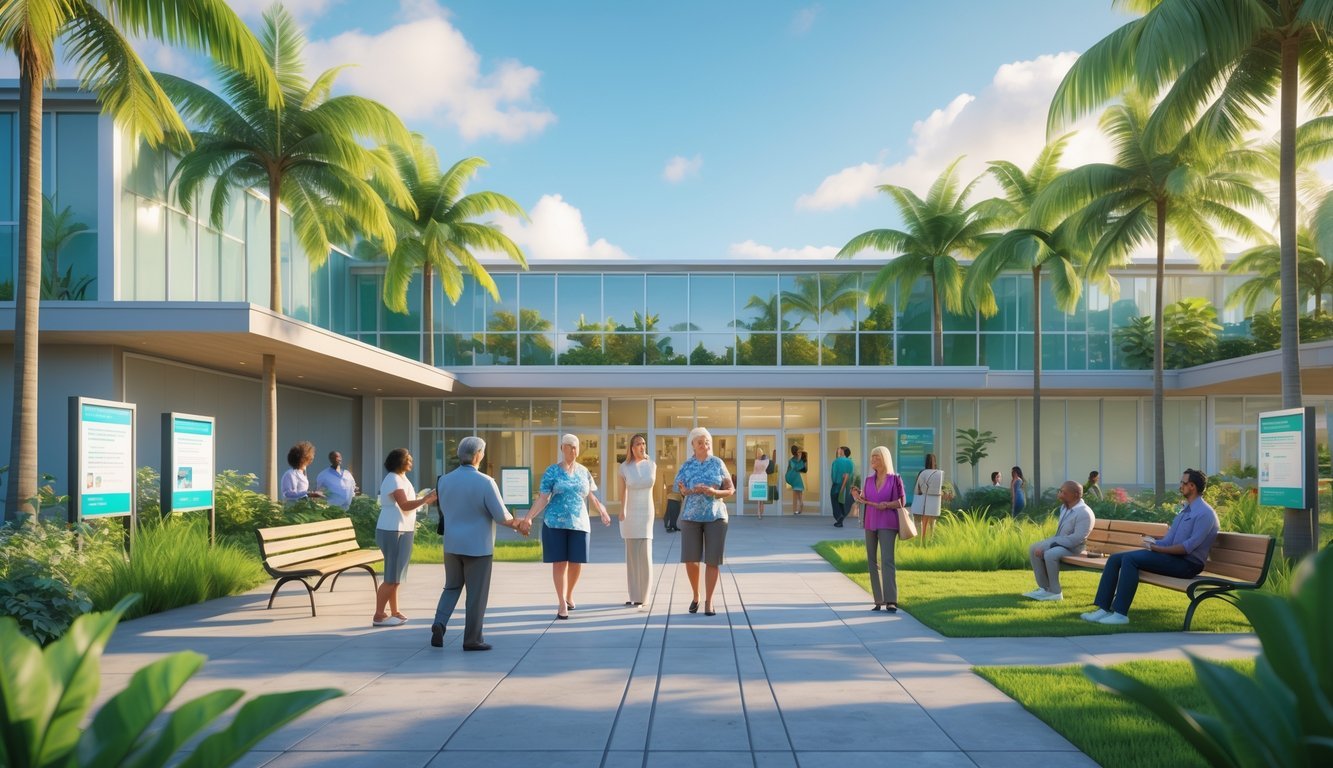
Hawaii has mental health programs for different age groups and conditions.
These services target substance use disorders, serious mental illness, and offer telehealth across the islands.
CAMHD (Child and Adolescent Mental Health Division) supports youth under 18 with mental health needs.
This state program is free if you meet income guidelines.
CAMHD helps kids with serious emotional or behavioral challenges.
You can get services at community mental health centers on every major island.
Services include:
The Hawaii Keiki school health programs bring mental health support into schools.
These programs help catch mental health issues early and connect students to care.
Community health centers also offer sliding-scale mental health care for kids.
Many accept Medicaid and provide culturally appropriate support.
Adults with serious mental illness can get comprehensive services from Hawaii’s community mental health centers.
These programs help people with long-term recovery and community living.
Key services available:
Psychiatrists and medication management are available at these centers.
You can continue treatment, no matter your ability to pay.
Assertive Community Treatment (ACT) teams support adults with the most severe conditions.
These teams offer 24/7 help and coordinate all aspects of care.
Crisis mobile outreach teams respond to emergencies and connect you to follow-up support.
The Hawaii Behavioral Health Training Institute trains counselors for substance use treatment statewide.
This helps more people in underserved areas get professional help.
Integrated programs treat both mental health and substance use together.
This approach usually works better for people with both issues.
Treatment options include:
Community health centers offer substance use counseling on a sliding fee scale.
Many programs use Native Hawaiian healing practices and cultural values.
Support groups like Alcoholics Anonymous and Narcotics Anonymous meet across all islands.
These peer-led groups give ongoing support at no cost.
Telehealth has grown a lot in Hawaii, especially for people living on neighbor islands.
You can now get mental health care from home using video calls.
Many community centers offer telehealth appointments.
This makes it easier to keep up with therapy and cuts down on travel time.
Telehealth benefits:
Some providers have text-based and app-based mental health support.
These tools offer 24/7 access to coping skills and crisis help.
Insurance, including Medicaid, now covers telehealth mental health care.
You pay the same as in-person visits for most telehealth sessions.
Hawaii has support services that help you feel part of your community and keep your housing stable.
You’ll find programs for trauma recovery, peer support networks, and housing assistance all working together to support your mental health.
Community integration programs help you build connections and learn skills for living independently.
These services focus on helping you stay active in your community while managing mental health challenges.
Vocational training and job placement are often part of these programs.
You can get skills training for careers in healthcare, tech, or clean energy.
Educational Support Programs include:
Some programs help people recover from trauma or abuse through community-based support.
These services help you rebuild trust and healthy relationships.
Many programs use culturally responsive methods that honor local traditions.
Native Hawaiian healing practices are part of many community programs, making healing feel more familiar and comfortable.
Peer support specialists work with counselors to help you find resources.
These specialists have lived through mental health challenges themselves and can offer practical advice.
Stable housing makes a big difference for mental health recovery.
Hawaii has several housing programs for both emergency shelter and long-term stability.
Emergency housing offers temporary shelter while you get your mental health back on track.
These programs often include counseling and case management on site.
Housing Support Options:
Some housing programs focus on people with trauma or abuse histories.
These environments provide extra security and trauma-informed care.
Case managers help you apply for housing and keep your place once you move in.
They also talk with landlords if concerns come up about your mental health.
Some programs give housing vouchers, letting you choose where to live while still getting support.
This helps you stay connected to your support network and community resources.
Support groups give you a safe spot to connect with people who really get what you’re going through. Folks meet up regularly, usually to talk about things like trauma recovery, depression, or dealing with anxiety.
Types of Support Groups Available:
Peer support networks link you with trained peer specialists who’ve been through similar stuff. They offer emotional support, share practical tips, and guide you through the process of finding mental health resources.
A lot of these groups use approaches that fit Hawaii’s mix of cultures. Asian and Pacific Islander communities, for example, have specialized mental health programs that work to break down cultural barriers to getting help.
Online support groups are out there too, which is pretty handy if you can’t make it to meetings in person. Virtual meetups can keep you connected even if transportation or timing gets in the way.
Some peer networks put their focus on trauma and abuse survivors. These groups know the unique struggles you face and offer support that matches your healing process.